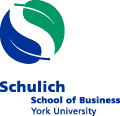
College of Commerce at National Chengchi University – NCCU – Taiwan
The College of Commerce at NCCU was established in the fall of 1957. The goals of this institution are to promote research in business and management sciences and foster entrepreneurial skills for future business managers. In 1997, NCCU opened a new building for the College of Commerce encompassing the latest technologies for the advancement of learning.
Location
The College of Commerce is located in Taipei, the capital of Taiwan, Republic of China. A vibrant city, it offers a great deal of excitement within its various sites. Due to its mountainous locale, the hiking around Taipei is excellent as well as is surfing along the eastern coast. For something more adventurous, try grass skiing – prompted by Taiwan's lack of snow.
Surrounded by lush hills, with the rivers Jing-mei and Zhi-nan running through the campus, the College is in a gorgeous setting. With frequent bus service to the city centre, students can study in a peaceful setting yet have easy access to the capital's attractions.
Approximate Term Dates
Fall Term: Mid September to mid January.
Winter (Spring) Term: Late February to late June
Note that NCCU allows exchange students to write exams early.
Academic Information
Areas of concentration include: International Trade, Money and Banking, Accounting, Statistics, Business Administration, Management Information Systems, Finance and Banking, Risk Management and Insurance. NCCU is highly regarded in business circles as one of the top institutions to receive a business education. Emphasis is placed on individual thinking and creativity. Students can expect many essays and analytical problems as opposed to examinations. Exchange students can take IMBA courses.
Course descriptions can be found on the following link:
http://imba.nccu.edu.tw/OIP/ETP/ETPCoursesList.htm
Lecture schedules can be found here:
http://imba.nccu.edu.tw/OIP/ETP/ETPCoursesList.htm
Credit Equivalency
3 NCCU 3-credit courses = 12 SSB credits
4 NCCU 3-credit courses = 15 SSB credits
Size of Classes
The total enrollment is over 4000 students spread out over the eight departments. Class sizes are not particularly large but will vary depending on the course and instructor.
Language
All students attending NCCU should have a good grasp of the Mandarin language. Spoken and written literacy is an important element to sustain any sort of success. There currently are 40 courses offered in English. The International Program Office can provide a list of courses that are taught in English once acceptance for exchange is complete.
Computer Facilities
The library and computer facilities are superb. The library has a large collection of books, periodicals and newspapers. Many of the volumes are gradually being computerized. The Computer Center is a seven story building which is fully equipped with personal computers with network Internet access. These facilities are made available to all students.
Type/Availability of Accommodation
Exchange students will be offered dormitories. Students will be housed in double rooms. The Office of International Programs will also assist student in finding off-campus housing. Meal plans are available and offer a wide variety of dishes.
For more information, please refer to the Housing link:
http://imba.nccu.edu.tw/oip/EXchange/IntlXC/IntlnHandBook.htm#4
Ma-Ma Tsuei Housing Service Association is an apartment-finding resource available to exchange students.
http://www.tmm.org.tw
Health Insurance
All students should obtain some sort of health insurance before participating on the exchange.
Visa
For visa information contact the Taiwanese Consulate at:
151 Yonge Street, Suite 1202, Toronto, ON, M5L 2W7
416-369–9030 www.canada-taiwan.org
Further research
For more information about this partnership school, see the exchange literature available in the Schulich Exchange Reference Library located in room W263 SSB.
Useful Web sites include:
Chengchi University http://www.nccu.edu.tw
College of Commerce at NCCU http://commerce.nccu.edu.tw
Taiwan Ministry of Foreign Affairs http://www.mofa.gov.tw
Taipei Government Tourism http://tpe.gov.tw